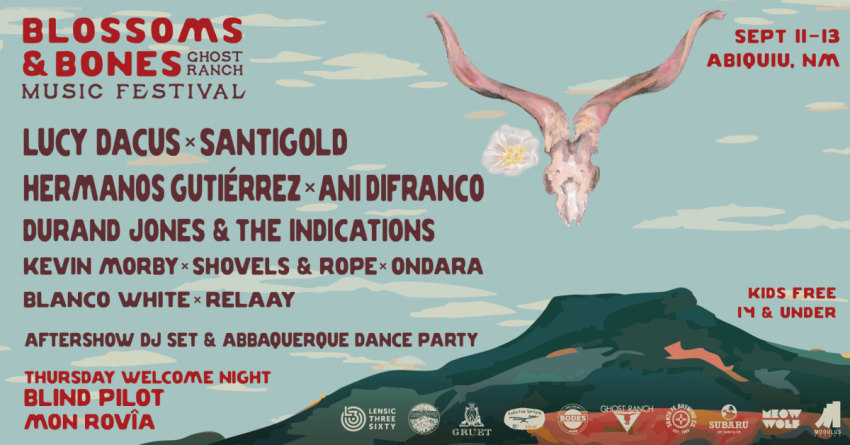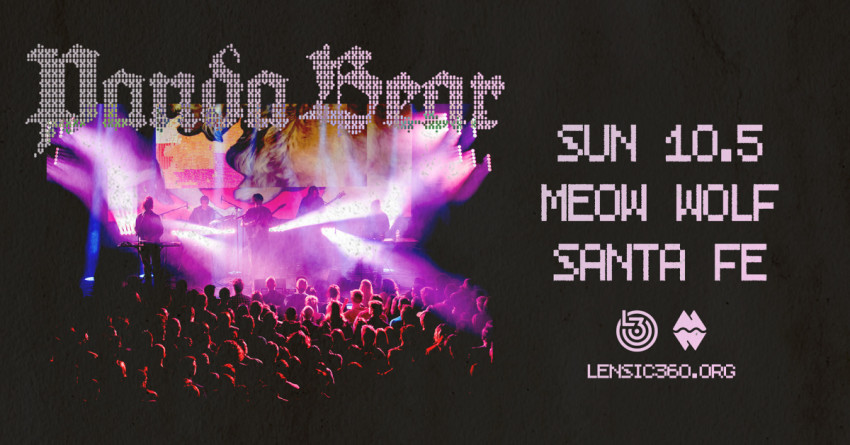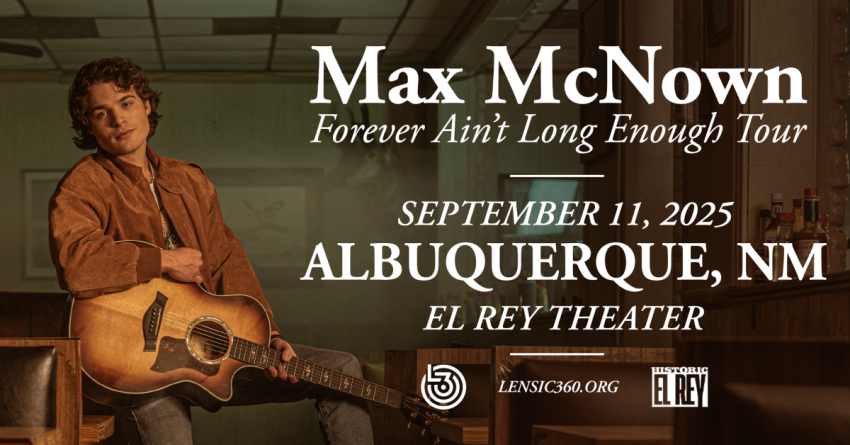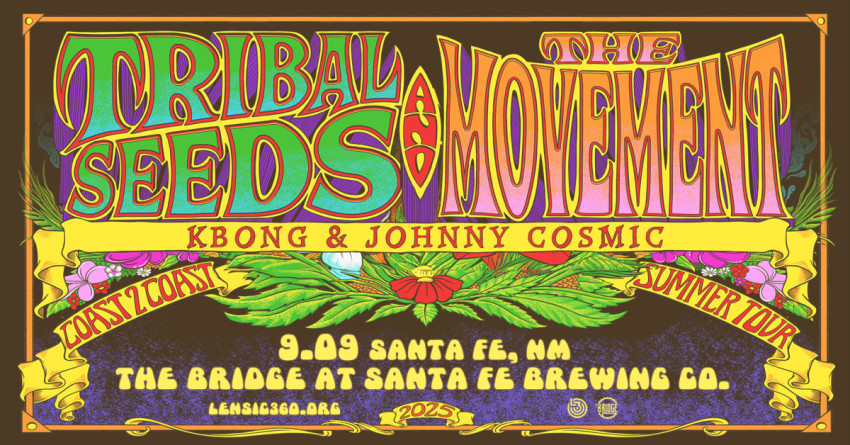

Search
Joe West's Musical Medicine Show
June 7thE.T. The Extra Terrestrial
June 7thBarrington Levy
June 7thThe Kiffness - SOLD OUT
June 10thShinyribs
June 12thMeow Wolf Monster Battle: Coco & Breezy
June 13thMatteo Mancuso
June 13thFantastic Mr. Fox
June 14thPunch Brothers
June 17thPedrito Martínez Group
June 17thThe Travelin' McCourys
June 18thTerrance Simien & the Zydeco Experience
June 19thBig Bad Voodoo Daddy
June 20thTerrance Simien & The Zydeco Experience
June 20thJuneteenth Celebration: Natasha Diggs
June 21stAlison Krauss & Union Station
June 21stLake Street Dive
June 22ndSt. Paul & The Broken Bones
June 23rdSouthern Avenue
June 26thTank and The Bangas
June 27thTeam Everything: In Season
June 28thRocky Horror Picture Show
June 28thMarchFourth
July 1stFishbone
July 3rdCharley Crockett
July 5thRobert Earl Keen w/ Hayes Carll
July 6thLone Piñon
July 7thRed Baraat
July 9thLa Doña
July 10thDigable Planets w/ The Soul Rebels
July 10thVieux Farka Touré
July 11thVieux Farka Touré
July 12thVandoliers
July 12thM. Ward & The Undertakers
July 12thThe Meditations
July 13thThe Fabulous Thunderbirds
July 14thLow Cut Connie
July 15thMountain Grass Unit
July 15thDave Mason
July 16thPhosphorescent
July 16thLumbre Del Sol
July 17thThe Psychedelic Furs - SOLD OUT
July 17thMereba
July 17thImprovement Movement
July 18thBully
July 18thSonia De Los Santos
July 19thThe Wild Robot
July 19thSurprise Chef
July 19thReverend Peyton's Big Damn Band
July 21stFather John Misty - SOLD OUT
July 21stJulian Marley
July 22ndThe Family Stone
July 25thDavid Berkeley
July 26thGyedu-Blay Ambolley
July 26thBuena Vista Orchestra
July 27thTanner Usrey
July 27thBoris McCutcheon and The Salt Licks
July 28thKT Tunstall
July 29thDogs in a Pile
July 31stSanta Fe Salutes: Ladies of the 80's
August 1stGirls Inc. Stronger Together Fest
August 2ndInside Out 2
August 2ndRebirth Brass Band
August 3rdFelix Y Los Gatos
August 4thWaxahatchee
August 4thAl Hurricane Jr.
August 5thThee Sinseers & The Altons
August 7thYelawolf
August 7thBig Daddy Kane With His Live Band
August 8thJunior Toots
August 9thChuck Prophet and His Cumbia Shoes
August 10thRosali
August 10thChuck Prophet and His Cumbia Shoes
August 11thLevi Platero
August 12thMacy Gray
August 12thIndigenousWays Festival: Robert Mirabal
August 15thHot Buttered Rum
August 16thA Complete Unknown
August 16thABBAquerque
August 18thThe English Beat
August 19thCuarenta y Cinco
August 21stNew Breed Brass Band w/ Trombone Shorty
August 22ndA Hawk and A Hacksaw
August 23rdModest Mouse
August 23rdTennis
August 24thThe Dead South
August 24thDetroit Lightning
August 25thPokey LaFarge
August 26thKeb' Mo' and Shawn Colvin - SOLD OUT
August 27thThe Blue Ventures
August 28thScott Bradlee's Postmodern Jukebox
August 28thSam Barber
August 28thJon Batiste Plays America
August 31stJon Batiste Plays America
September 1stThe Mavericks - SOLD OUT
September 6thA Prairie Home Companion's 50th Anniversary
September 7thTribal Seeds and The Movement
September 9thSamantha Fish
September 10thMelvins
September 10thBlossoms & Bones
September 11thMax McNown
September 11thThe Swell Season
September 15thBirdtalker
September 16thFortunate Youth
September 17thWyatt Flores
September 17thKeller Williams' Grateful Grass
September 19thPile
September 20thBUNT.
September 23rdCuco
September 23rdJohn Moreland
September 24thI'm With Her
September 29thThe Waterboys
September 30thNoah Reid
October 1stRainbow Kitten Surprise
October 1stBuilt To Spill
October 2ndThe Head and The Heart: Aperture Tour
October 2ndPanda Bear
October 5thWednesday
October 9thLas Cafeteras
October 19thNicotine Dolls
October 21stThe Last Revel x Oliver Hazard
October 22ndArlie
October 26thLas Cafeteras
October 28thJosh Johnson: The Flowers Tour
November 1stJosh Johnson: The Flowers Tour
November 2ndMurder By Death
November 2ndOsees - SOLD OUT
November 4thRichy Mitch & The Coal Miners
November 5thWilli Carlisle
November 6thThe Brian Jonestown Massacre - SOLD OUT
November 8thJoshua Radin
November 10thLucius
November 12thInfinity Song
November 19thNeko Case
November 21stDakhaBrakha
December 3rdDakhaBrakha
December 4thWelcome To Night Vale: Murder Night in Blood Forest
January 26thPink Martini
March 23rdPink Martini
March 24thGillian Welch & David Rawlings - SOLD OUT
Add to Cal
TICKETS: $117 / $92 / $77
Member pre-sale: Tuesday, November 12, 10 am
Public sale: Friday, November 15, 10 am
Want pre-sale access? Become a Lensic member! Learn more here.
FOR ONLINE CUSTOMER TICKETING sales and support contact boff@lensic.org or call 505-988-1234.
IN-PERSON WALK-UP SALES ONLY are available at the Lensic Box Office during Box Office hours.
ABOUT THE VENUE: The Lensic
Alcohol: Yes, there are two bars in the inner lobby
Seating: Yes
Outside Food/Drink: No
Parking: Yes, you can pre-pay for parking validation in the Sandoval garage (across the street) during your check out
ADA: Yes, please notify a box office representative of accommodations prior to show
GILLIAN WELCH & DAVID RAWLINGS
Gillian Welch and David Rawlings are pillars of the modern acoustic music world and their rich and remarkable careers span over twenty-five years. They have been hailed by Pitchfork as “modern masters of American folk” and “protectors of the American folk song” by Rolling Stone.
After moving to Nashville in the 1990s, Welch was launched into the public consciousness when Emmylou Harris recorded a cover of Welch’s “Orphan Girl.” Her career continued to flourish as her 1996 debut Revival, produced by T Bone Burnett, was released to critical acclaim. Firmly on the roots music map following the release, Welch and Rawlings followed up that GRAMMY nominated album release with 1998’s Hell Among The Yearlings, a stark duet record that further solidified the duo as a force in the folk music scene.
In 2000, Welch was awarded the Album of the Year GRAMMY for her work as Associate Producer as well as a performer and songwriter on the eight times platinum O Brother, Where Art Thou? Soundtrack. Welch and Rawlings were simultaneously nominated for Time (The Revelator) which Rolling Stone called one of the best albums of the 2000s and is widely considered by critics and fans to be one of the best albums of all time.
Beginning with Time (The Revelator), all of Welch and Rawlings albums have been self- produced and self-released on their own record label, Acony Records, helping to establish the duo’s fierce commitment to independent music.
2003’s Soul Journey was the pair’s first experimentation with a fuller, electric sound, which paved the way for the Dave Rawlings Machine project, and their first release under Rawlings’ name (A Friend of A Friend, 2009), which was accompanied by a time period of heavy touring and headlining major festivals.
The Harrow and The Harvest returned to the duet sound and was nominated for Best Contemporary Folk Album and Best Engineered Album at the 2012 GRAMMYs, and won Artist of the Year (Welch) and Instrumentalist of the Year (Rawlings) at the Americana Honors & Awards. The album garnered glowing reviews and topped multiple year end “Best Of” lists.
Nashville Obsolete, the last project to be released as Dave Rawlings Machine in 2015, showcased Rawlings’ expanding pallet as a producer with more lavish arrangements, strings, and guest musicians. He also produced albums by Willie Watson, Dawes, Old Crow Medicine Show, and Robyn Hitchcock. “Cumberland Gap” from Poor David’s Almanack in 2017 was nominated for Best American Roots Song and was featured in Guy Ritchie’s film The Gentlemen, and has since become one of the duo’s highest streaming songs.
In celebration of the twenty year anniversary of the Welch-Rawlings partnership, the two launched an archival branch of Acony Records, entitled Boots, dedicated to releasing outtakes, demos, bootlegs, and live recordings from their copious vault. Thus far they have released five album’s worth of music with more on the way.
In 2018, Welch was the first musician to receive the Thomas Wolfe Prize for Literature. The award is bestowed by University of North Carolina Chapel Hill’s Department of English & Comparative Literature and recognizes contemporary writers with a distinguished body of work. 2019 saw Welch and Rawlings nominated for an Academy Award for “Best Original Song” where they performed their singing cowboy duet live on the Oscars. “When A Cowboy Trades His Spurs For Wings” was written for the Coen brothers’ film The Ballad Of Buster Scruggs. In 2020, the duo released All the Good Times, the first album under both their names, and won the GRAMMY for the Best Folk Album.
Recently, they were crowned with the Berklee American Masters Award and honored by Americana Music Association with a Lifetime Achievement for Songwriting.
GILLIAN WELSH
Gillian Welch’s rich and remarkable career spans over twenty-five years, and she and her musical partner David Rawlings are a pillar of the modern acoustic music world. They have been hailed by Pitchfork as “modern masters of American folk” and “protectors of the American folk song” by Rolling Stone.
After moving to Nashville in the early 1990s, Welch was launched into the public consciousness when Emmylou Harris recorded a cover of Welch’s “Orphan Girl.” Her career continued to flourish as her 1996 debut Revival, produced by T Bone Burnett, was released to critical acclaim. Firmly on the roots music map following the release, Welch followed up that GRAMMY nominated album release with 1998’s Hell Among The Yearlings, a stark duet record with Rawlings, further solidifying the duo as a force in the folk music scene.
For her work as executive producer as well as a performer and songwriter on the eight times platinum O Brother, Where Art Thou? soundtrack, Welch was awarded the Album of the Year GRAMMY, and was simultaneously nominated for her own Time (The Revelator) which Rolling Stone called one of the best albums of the 2000s and is widely considered by critics to be one of the best albums of all time. This release was Welch-Rawlings’ first on their own record label, Acony Records, helping to establish the duo’s fierce commitment to independent music.
2003’s Soul Journey was the pair’s first experimentation with a fuller, electric sound, which paved the way for the Dave Rawlings Machine project, and their first release under Rawlings’ name (A Friend of A Friend, 2009), which was accompanied by a time period of heavy touring and headlining major festivals while biding their time to return to the duet sound the two were traditionally known for. 2011’s The Harrow and The Harvest was nominated for for Best Contemporary Folk Album and Best Engineered Album at the GRAMMYs, and won Artist of the Year (Welch) and was nominated for Instrumentalist of the Year (Rawlings) at the Americana Honors & Awards. The album garnered glowing reviews and topped multiple year end “Best Of” lists.
In celebration of the twenty year anniversary of the Welch-Rawlings partnership, the two launched an archival branch of Acony Records, entitled Boots, dedicated to releasing outtakes, demos, bootlegs, and live recordings from their copious vault. Thus far they have released five album’s worth of music with more on the way.
In 2018, Welch was the first musician to receive the Thomas Wolfe Prize for Literature. The award is bestowed by University of North Carolina Chapel Hill’s Department of English & Comparative Literature and recognizes contemporary writers with a distinguished body of work. 2019 saw Welch and Rawlings nominated for an Academy Award for “Best Original Song” where they performed their singing cowboy duet, written for the most recent Coen brothers’ film, live on the show. In 2020 the duo released All the Good Times, the first album under both their names, and won the GRAMMY for the Best Folk Album.
Recently, they were crowned with the Berklee American Masters Award and honored by Americana Music Association with a Lifetime Achievement for Songwriting.
Welch and Rawlings continue to tour the world in support of their music while simultaneously writing and lending their talents to countless fellow artists’ projects. They are continuously working to release their acclaimed catalog on phonograph records of the highest possible fidelity.
DAVID RAWLINGS
Singer. Grammy-nominated songwriter. Producer. Award-winning guitarist. Since kicking off his career with 1996’s Revival — an album billed under Gillian Welch’s name, but featuring the indispensable co-writing, harmony-singing and instrumental chops of her musical partner — David Rawlings has woven one of the most acclaimed paths in Americana music. He reaches a new destination with his third solo album, Poor David’s Almanack, whose songs point to a frontman who continues walking the fine line between rootsy revivalism and bold innovation.
This is a modern folk album that wears its old-school influences on its sleeve. Like Bob Dylan’s early work, Poor David’s Almanack looks to archetypal songs of the American roots-music catalog for inspiration, using them as launching points for a wildly original tracklist. The high-lonesome harmonies and acoustic fretwork of “Midnight Train” jumpstart the album on an earthy note, while “Airplane” — a southern ballad featuring a string section arranged by Rawlings himself — reaches skyward. Rawlings even evokes the call-and-response format of old field songs during the chorus of “Good God a Woman,” then serenades a lover with the fiddle-fueled, countryfied “Come Over My House.” Throughout its 10-song tracklist, Poor David’s Almanack sounds both fresh and familiar, offering new music rooted in the tradition, texture and twang of the folk songbook.
“This is new territory for me, with songs that stick much closer to classic folk melodies and classic folk structures,” he explains. “Before, if I’d wanted to sing a song like ‘Midnight Train,’ I would’ve covered a traditional song that already exists. This is the first time I looked at myself and thought, ‘Wait, if I want to play music like that, I should make it myself,’ because I love that kind of music and I want to be a creator of it. I want to try and inject some of myself into that folk bloodstream.”
A leader of the contemporary folk revival, Rawlings began releasing albums with Gillian Welch in the mid-’90s, championing a more acoustic-based sound during the heyday of grunge. For more than two decades since, he has juggled multiple roles as a frontman, duo partner, sideman and behind-the-scenes producer. His vocals can be heard on the Grammy-winning soundtrack to O Brother, Where Art Thou?, whose multi-platinum sales and widespread popularity helped introduce old-time folk music to a 21st century audience, and his unique approach to the acoustic guitar has influenced a new generation of forward-thinking folkies, several of whom — including Dawes and Old Crow Medicine Show — have hired Rawlings to produce their own albums. Dawes’ Taylor and Griffin Goldsmith both make appearances on Poor David’s Almanack, as do multiple members of Old Crow’s past and present lineups, including Ketch Secor and Willie Watson. On an album filled with some of the brightest lights in Americana music, though, Rawlings’ star shines the strongest, whether he’s singing in a mercurial voice or leading his band through an instrumental section worthy of a front-porch picking party.
Half of Poor David’s Almanack was written alone — a first for Rawlings, who typically co-writes with Gillian Welch — and songs like “Money is the Meat in the Coconut” have already become staples of his live show, tossed into his setlist days after they were completed. Later, while recording the album to analog tape at Woodland Studios in East Nashville, Rawlings experimented with overdubs and other layered effects. Assisting him were a pair of top-shelf engineers: longtime collaborator Matt Andrews and legendary studio hand Ken Scott, whose work can be heard on landmark albums by the Beatles, David Bowie, and Elton John.
Influenced by new experiences, old sounds and classic books (including Benjamin Franklin’s Poor Richard’s Almanack, whose title serves as the basis for Rawlings’ own album), Poor David’s Almanack nods to its source material without borrowing. It’s a nod to the past and a step toward the future. “Cumberland Gap,” with its electric guitar solos and coed harmonies, even evokes the California folk-rock of Fleetwood Mac, pushing Rawlings into ever-evolving territory.
“That’s the beautiful thing about this kind of music,” he says. “It’s supposed to be a chain. Maybe it’s supposed to be a chain that looks like a circle. We’re all looking for our best way to contribute to the great musical landscape. We’re all trying to raise some little part of that building.”



